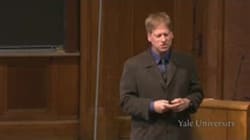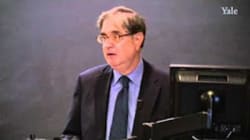Images
This course explores the causes, course, and consequences of the American Civil War, from the 1840s to 1877. The primary goal of the course is to understand the multiple meanings of a transforming event in American history. Those meanings may be defined in many ways: national, sectional, racial, constitutional, individual, social, intellectual, or moral. Four broad themes are closely examined: the crisis of union and disunion in an expanding republic; slavery, race, and emancipation as national problem, personal experience, and social process; the experience of modern, total war for individuals and society; and the political and social challenges of Reconstruction.
Similar resources
Since its founding in 1701, Yale has been dedicated to expanding and sharing knowledge, inspiring innovation, and preserving cultural and scientific information for future generations.
Yale’s reach is both local and international. It partners with its hometown of New Haven, Connecticut to strengthen the city’s community and economy. And it engages with people and institutions across the globe in the quest to promote cultural understanding, improve the human condition, delve more deeply into the secrets of the universe, and train the next generation of world leaders.


Introduction to Ancient Greek History with Donald Kagan

Introduction to Psychology with Paul Bloom

Listening to Music with Craig Wright

Atmosphere, Ocean and Environmental Change with Ron Smith

The Early Middle Ages, 284--1000 with Paul Freedman










